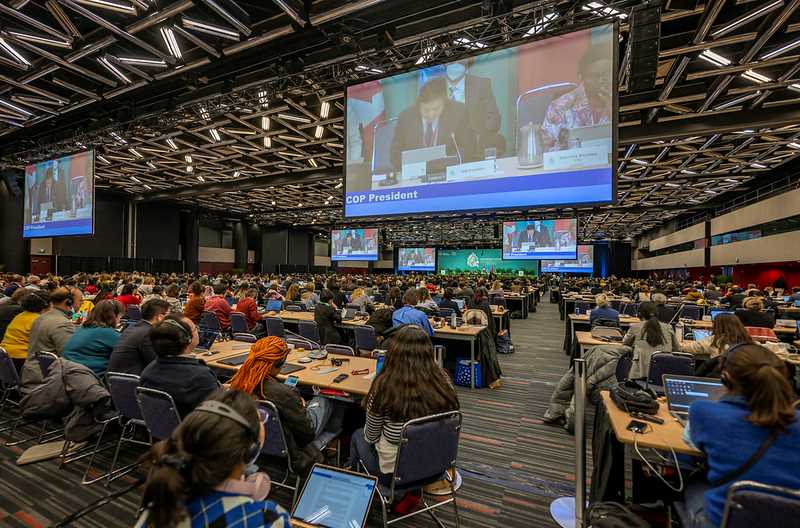21-10-2024
COP16 on biodiversity starts in Cali: perspectives and challenges for the future of the planet
The Conference of the Parties (COP16) on biodiversity begins today in Cali, Colombia, and is presented as a decisive moment in the global struggle to preserve nature. More than 190 countries, non-governmental organizations, scientists, businesses, indigenous communities and environmental activists will come together with the common goal of slowing the loss of biodiversity and boosting the protection of our natural heritage.
A clear focus: the implementation of the Kunming-Montreal Global Biodiversity Framework
COP16 will focus on the implementation of the Global Biodiversity Framework (GBF) established at COP15 in Montreal, with key objectives such as the protection of 30% of the planet's land and oceans, the restoration of degraded ecosystems and the reduction of pollution by plastics. However, preparation for this summit has been uneven, as 80% of countries have not submitted their updated conservation plans, known as NBSAPs (National Biodiversity Action Plans), according to an analysis by Carbon Brief and The Guardian. This endangers the achievement of the set objectives.
Colombia: leader in the fight against the climate and biodiversity crisis
The Colombian government, under the leadership of President Gustavo Petro, has been a prominent voice at international environmental summits, being the first major fossil fuel producer to join the alliance for a fossil fuel non-proliferation treaty during COP28 in Dubai. Petro has raised biodiversity as the basis of the country's wealth in a post-fossil fuel era.
One of the most visible faces of this change is Susana Muhamad, Minister of the Environment and leader at COP16 on biodiversity. Considered a rising star of the environmental movement, she has championed a "just transition" that addresses economic inequalities and protects biodiversity. Muhamad also stressed the importance of not leaving indigenous and local communities behind in this transition. In her words, "the energy transition cannot be at the expense of indigenous peoples, local communities and biodiversity."
Delays in the submission of NBSAPs: a global concern
Among the megadiverse countries, only five out of seventeen have submitted their NBSAPs. This lack of preparedness puts crucial ecosystems at risk, including the Amazon and the Congo rainforest. Although many countries cite extensive consultation processes or funding problems as reasons for the delays, the situation highlights the need to accelerate conservation efforts. For example, Brazil, the most biodiverse nation, has experienced difficulties in developing its plan, despite having completed an extensive consultation involving more than a thousand participants.
Key topics at the summit: financing, environmental justice and integration with climate change
Discussions at COP16 will focus on several crucial aspects to advance biodiversity protection. Notable among these is the demand from developing countries for greater funding to enable them to implement effective conservation measures. A greater integration of biodiversity and climate change policies is also expected, treating these two problems as parts of the same struggle. Another priority issue will be the protection of the oceans, with the aim of preserving 30% of the seas by 2030 (30x30). Finally, environmental justice will be a key issue, seeking to recognize the fundamental role of indigenous peoples in conservation and ensure respect for their territorial rights.
With this spirit of collaboration and action the research group UNBURNED will present the results of their study on non-extractable fossil fuels. On Friday 25 they will be at the event "Mapping a Different Future" organized by the Leave it in the Ground Initiative (LINGO )️. There will also be Alejandra Katherin Otalora, PhD student at the IRBio with the "Estación Biológica Andes" project of the Margarita y José Foundation.
At this COP16, the eyes of the world will be on the negotiations and commitments that can be reached to guarantee the protection of global biodiversity.
Sources:
